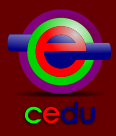KNOWLEDGE OF TRADITION AND SCIENTIFIC KNOWLEDGE: CONNECTED BY THE THEORY OF COMPLEX THINKING
Keywords:
Knowledge of Tradition, Scientific knowledge, Complex thinking.Abstract
The present work portrays fragments of the Dissertation entitled The Bahia-Buoyant, the Eagle and the Teaching of Science. The research is based on our concern about the great distance from the world of knowledge. On the one hand, the knowledge of tradition, often labeled as a dead archive without identity, on the other, the scientific knowledge found in the supremacy of institutionalized science. Moved by the plural voices, we make a trip, whose destination is the Mata do Passarinho Reserve. And as a strategy for the development of the research we made use of narratives, based on the Theory of Complex Thought, proposed by Edgar Morin. The results aim to present the importance of the approach between knowledge.Downloads
References
ALMEIDA, Maria da Conceição de. Complexidade, saberes científicos, saberes da tradição. 2. Ed. e ampl. - São Paulo: Editora Livraria da Física, 2017.
GLEISER, Marcelo. A simples beleza do inesperado: um filósofo natural em busca de trutas e do sentido da vida. – 1ª ed. – Rio de Janeiro: Record, 2016.
Livro Vermelho da Fauna Brasileira Ameaçada de Extinção: Volume III – Aves / -- 1. ed.- Brasília, DF: ICMBio/MMA, 2018.
MORIN, Edgar. A cabeça bem-feita: repensar a reforma, reformar o pensamento. 18º. Ed. – Rio de Janeiro: Bertrand Brasil, 2010.
MORIN, Edgar. Os sete saberes necessários à educação do futuro. – 11. Ed. São Paulo: Cortez; Brasília, DF: UNESCO, 2006.
MORIN, Edgar. CIURANA, Emílio Roger. MOTTA, Raul Domingo. Educar na era planetária: o pensamento complexo como método de aprendizagem no erro e na incerteza humana. – São Paulo: Cortez. Brasília. DF – UNEB, 2003.
SERRES, Michel. Narrativas do humanismo. Tradução de Caio Meira. – 1. Ed. – Rio de Janeiro: Bertrand Brasil, 2015.
Published
How to Cite
Issue
Section
License
Copyright
The submission of originals to Cenas Educacionais (Educational Scenes - CEDU) implies the transfer, by the authors, of the publication rights. The copyright for the manuscripts published in this journal is the author(s), with CEDU rights over the first publication. Authors(s) may only use the same results in other publications by explicitly indicating CEDU as the means of the original publication.
Creative Commons License
Except where otherwise specified, the terms of a Creative Commons Attribution-ShareAlike 4.0 International License license apply to the material published in this journal, which allows unrestricted use, distribution and reproduction in any medium provided the original publication is correctly cited.






 This work is licensed with a License
This work is licensed with a License 